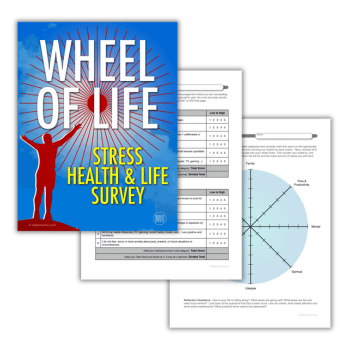COVID-19 and wellbeing – Let’s remember that staff are affected too

The mental health of our students has rightly been the focus of much attention these past two years, but we risk overlooking the profound impact the pandemic has also had on the wellbeing of school staff

- by Vic Goddard
- Executive principal, author and star of Educating Essex

Being in school almost constantly over the last two years, I’ve seen the impact of the pandemic across our whole community.
Yet while there have been a great many reports published regarding the mental health of our students and the families we serve, it seems that the impact on staff – many of whom are themselves parents or carers – has been of less interest.
I was therefore delighted when The Key’s GovernorHub service released a set of findings highlighting the concerns governors and trustees currently have for the wellbeing of school staff, and am grateful to them for having given me the chance to discuss said findings in a webinar that took place in early March, a recording of which can be seen below.
Striking a ‘balance’
The phrase ‘critical friend’ is a well-worn one, but one that very much applies to governors and trustees. Their relationships with heads involve walking a line that’s always been narrow, but which has became even more so over the last two years. To see more than 4,000 of them surveyed, and over 80% expressing concerns regarding the mental health of the school staff they work with, is something the DfE must pay attention to.
The improvement and development of schools and the staff who work in them is constant, but persisting with that when teaching is being done remotely, and with no exams at the end, has proven incredibly difficult. The argument could be made that it’s not necessarily the number one priority, when the expectations placed on staff to change their ways of working and embrace new technologies has been so unrelenting.
For some, the switch we’ve seen to more technology-assisted teaching has been quite straightforward. For others, it’s been a seismic change that’s left an impact that needs to be taken seriously by leaders at all levels. Technology can often lessen teachers’ workload, but not always.
Attaining a good work-life balance is tricky, since what might be considered by some as ‘balanced’ won’t be for others. Expecting governors/trustees to have a clear understanding of how to help their headteachers and CEOs manage their workload thus seems a little optimistic. And that’s before you factor in the various anxieties staff will have had in managing their lives outside of school, in areas as fundamental as the health of their own families.
Trending
Altering expectations
The flexibility that’s proved so vital during our response to the pandemic is still required as we come out of it. I’ve previously written about delegation, and how the extent to which tasks are truly delegated has a major impact on workload and efficiency.
The closer we can get to staff autonomy on tasks the better, because requiring people to check in constantly, rather than simply letting them get on with things, takes time – the one resource we never have enough of. Bottlenecks can develop quickly, generating stress and lessening efficiency.
I’m very fortunate in that Passmores’ governors and trustees continue to follow a flexible approach. They’ve moved away from requesting long, multi-page reports, for instance, and our governing bodies and trust board employ excellent formal clerking, so that reports can be given verbally if governors feel this will still allow them to carry out appropriate scrutiny.
The COVID infection rates may be gradually declining, but it would be foolish for us to rush back to how things were done previously. All leaders should bear in mind that the impact of the pandemic will be felt for years to come. We may crave face-to-face meetings, but if it’s best for people at the end of a long day to hold them online, we should do just that.
Ultimately, there are two simple questions we should be asking, and we’d do well to listen to the answers: ‘What do we ask you to do that takes a significant amount of time for little or no significant impact?’ and ‘How can we do it differently, but just as well?’
Vic Goddard is co-principal at Passmores Academy – as seen on Channel 4’s Educating Essex – and author of The Best Job in the World (Independent Thinking Press, £14.99).










